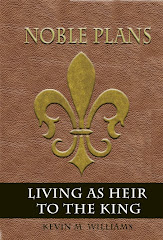
Chivalry – a definition:
“Chivalry was the knight's code of behavior. The code of chivalry grew with the songs of the minstrels in the 1000's and 1100's. Their poems show that a true knight had faith and a deep love of the Christian religion. He defended the church and was ready to die for it. He loved the land of his birth, and gave generously to all. His strength served to protect women and the feeble. A knight championed right against injustice and evil, and never surrendered or flinched in the face of the enemy.”*
Certainly this is how we choose to remember chivalry. It is the ideal, the much-romanticized principles that fill our bookshelves and imaginations. It represents the best, our hopes, and the glory we all wish for ourselves, for our politicians, and our world.
Chivalry - the historical truth:
“In real life, a knight did not always resemble the ideal knight of the minstrels. His code of honor and loyalty was sometimes applied only to members of his own class, and he often acted brutally toward people of low birth. The violent life of the Middle Ages made it difficult to prevent violations of the code. Even dedicated knights were also soldiers interested in conquest and plunder. A knight who was proved guilty of cowardice or other serious misconduct was disgraced by having his sword and his spurs broken. However, ‘serious misconduct’ usually meant violations against other knights and their families.”*
So what is the application to life today, a millennium removed from those “songs of the minstrels?”
The ideal of chivalry is infused throughout our culture—it’s inescapable. But it did not evolve in a vacuum. Its foundation is grounded in a biblical faith. And like the ideal of chivalry, the biblical expression entails a deep love of and faith in God (Matt 22:37) and a giving spirit (1 Tim 6:18). We are commanded to care for the widow and orphan (Jas 1:27), to champion justice (Deut 16:20), and to resist evil (Jas 4:7).
Do you meet the measure of chivalry’s ideal? Or are you more like the real-life knight of history?—a thug merely masquerading as a believer? If the latter, then you need a noble plan by which you can stand. If the former, then stand by your plan safe in the knowledge that you are perusing a regal life.
*WorldBook 2004, Contributor: Joel T. Rosenthal, Ph.D., Professor of History, State University of New York, Stony Brook.
 |
"A noble man devises noble plans and by noble plans he stands"





No comments:
Post a Comment